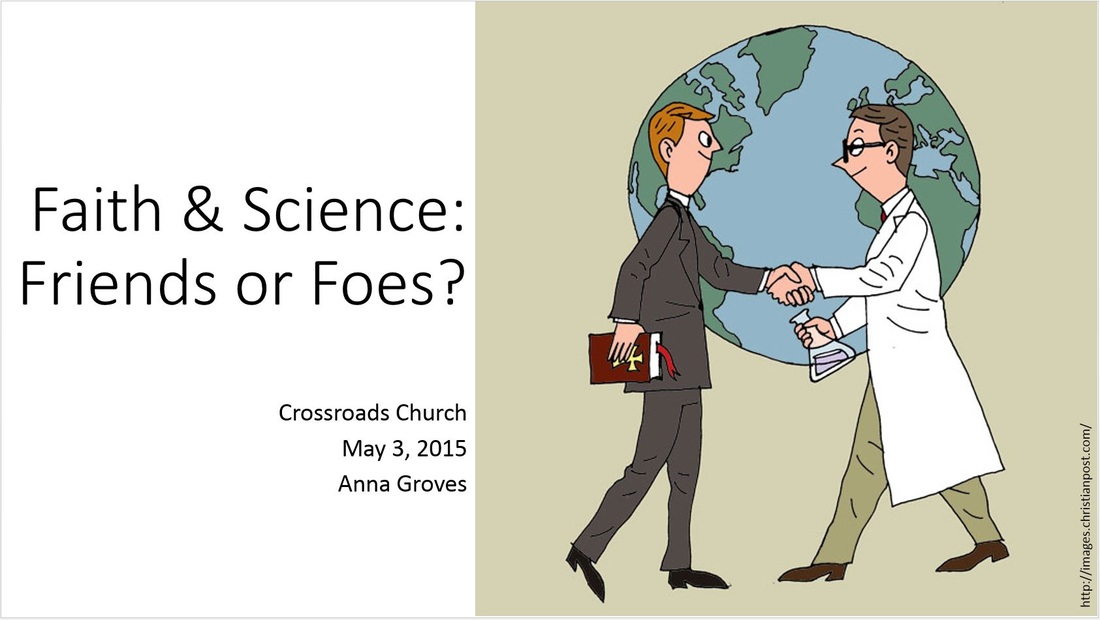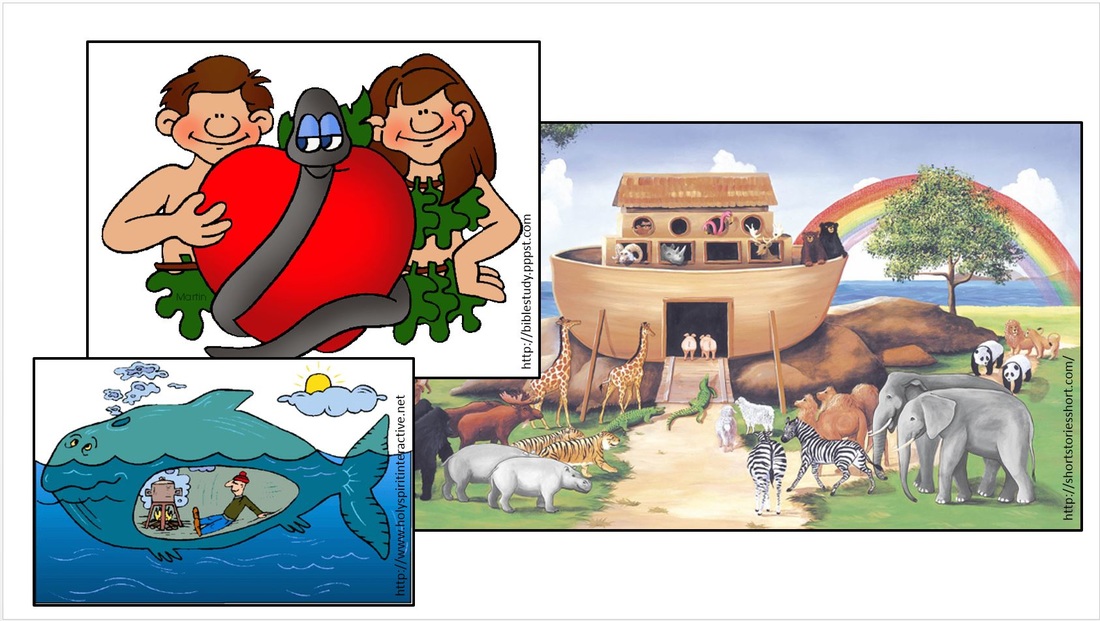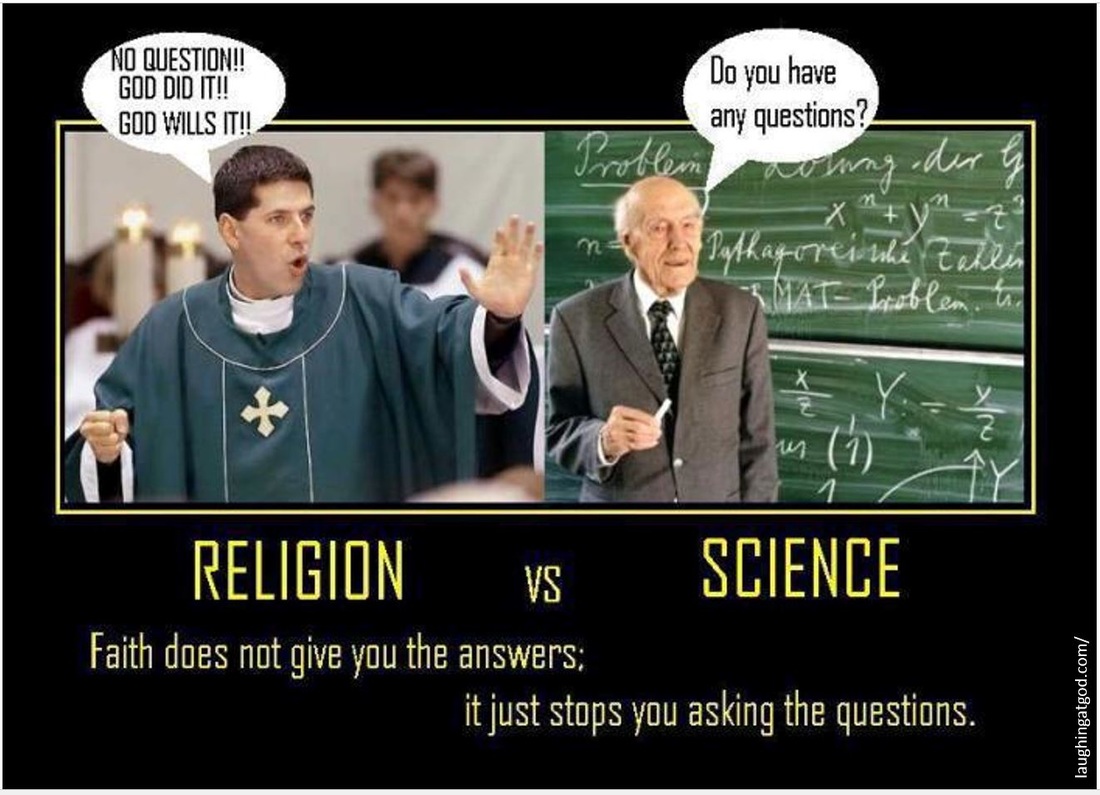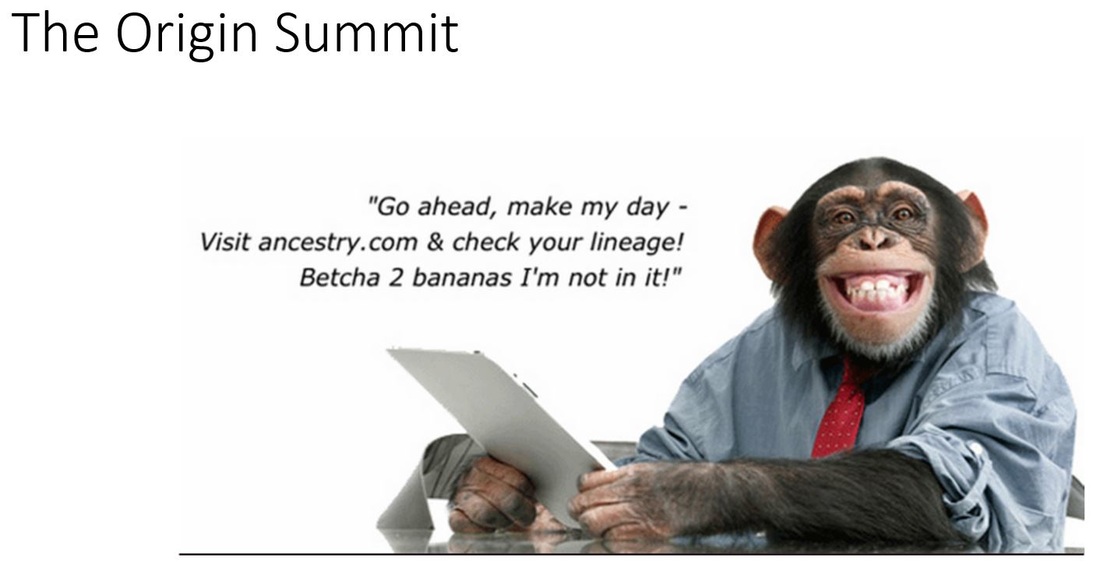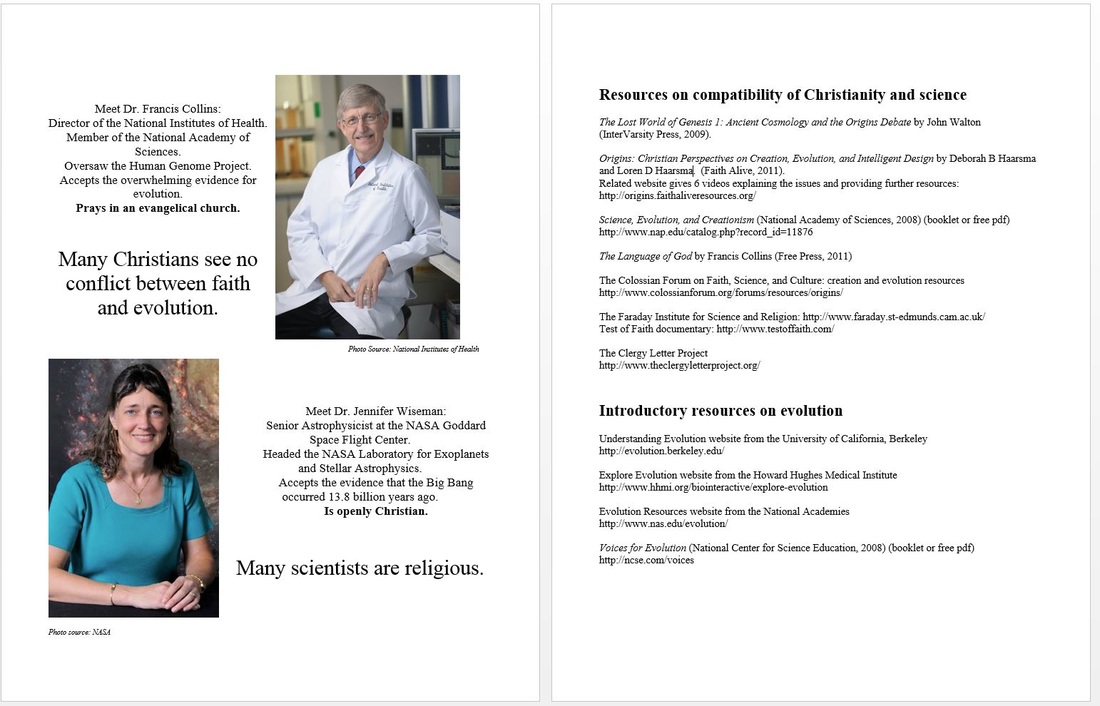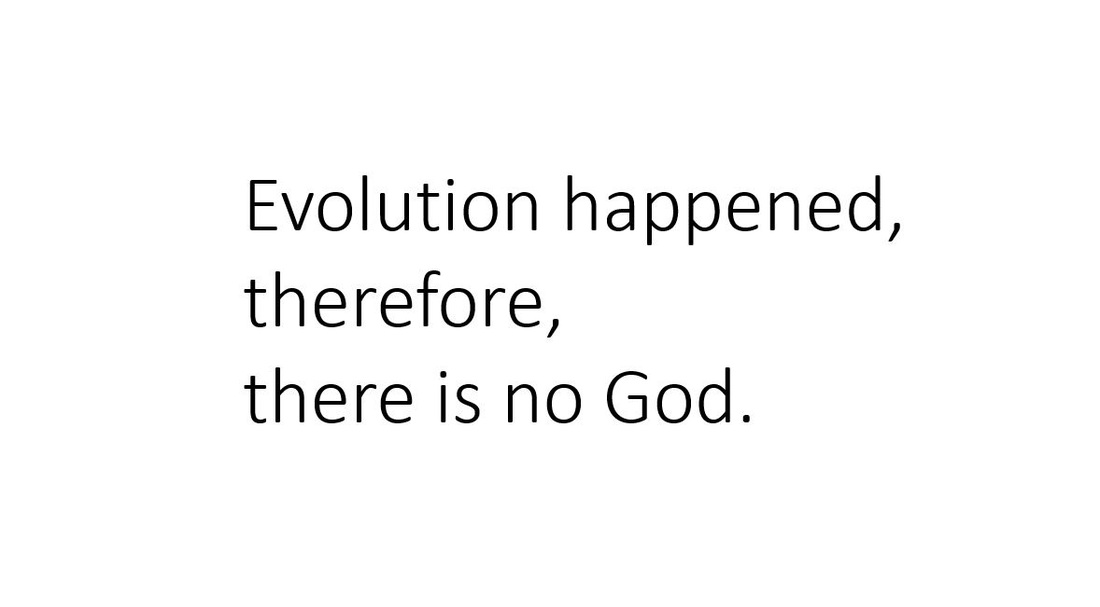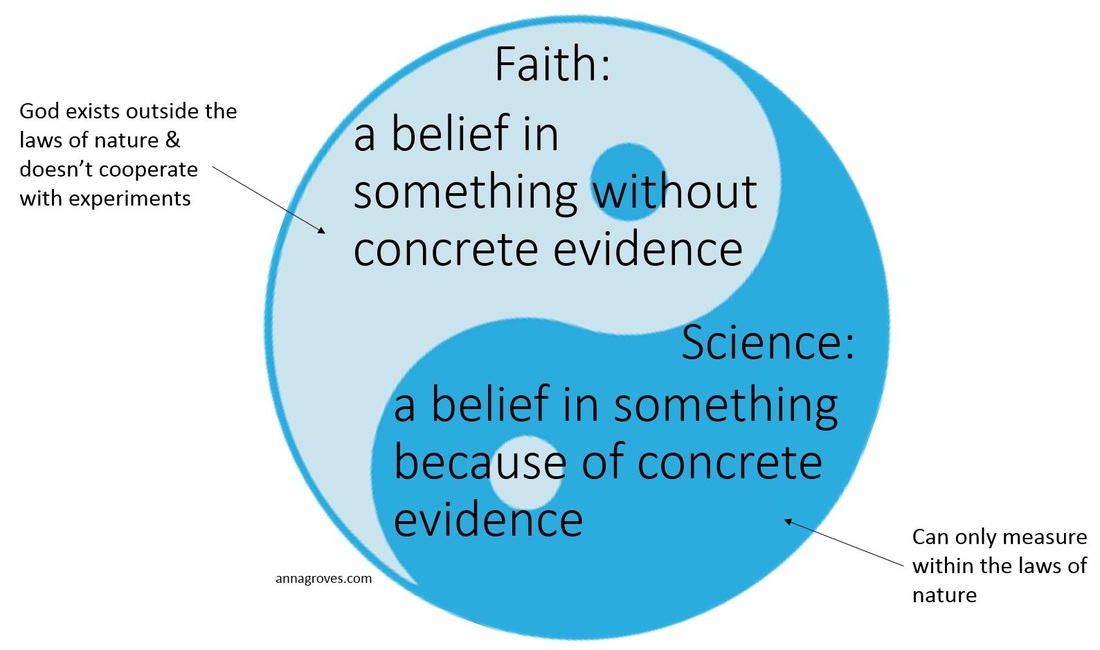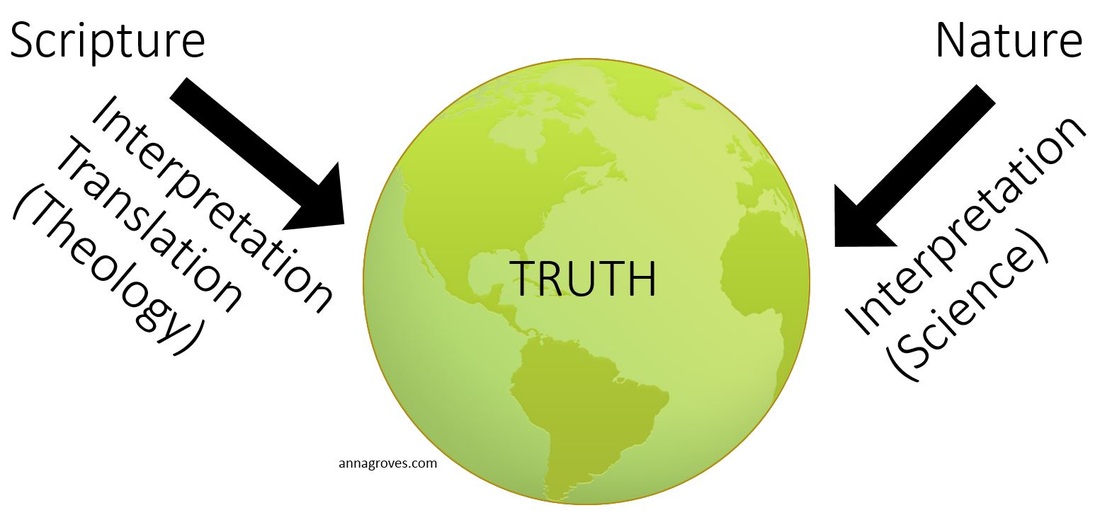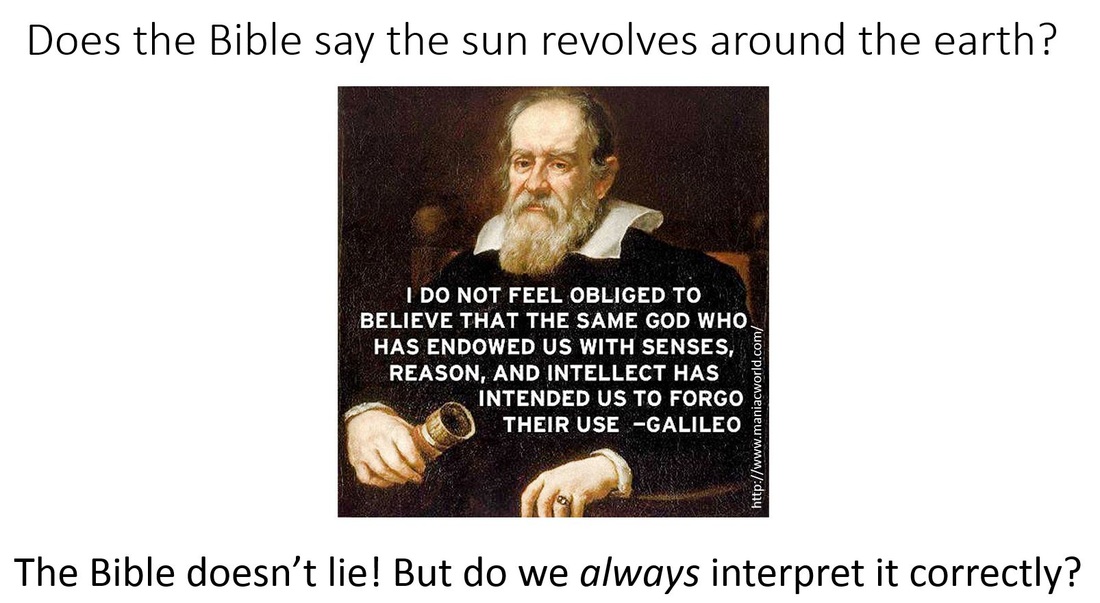Hi. It’s me, Anna. If we haven’t met, I’m a graduate student at Michigan State, studying prairies in the Ecology & Evolutionary Biology program. I don’t study evolution for my dissertation research, but I know a lot of people who do.
When I was a kid, there were a lot of Bible stories that just didn’t make sense to me. They weren’t realistic. This problem got worse as I got older and learned about things like evolution and archeology that would’ve, could’ve, should’ve verified these stories, if they were true. I have no memory of ever believing in Noah’s Ark or a seven day creation. Nobody ever told me I had to be a creationist to be a Christian, or that I had to be an atheist to be a scientist—I came to this conclusion all on my own. But I never liked those options.
I never voiced any of these doubts or questions out loud. I was a very shy and obedient child, and it seemed clear that I was supposed to believe what I learned in church without question. My friends and family seemed religious enough, judging purely on regular Sunday morning church attendance. I didn’t want to offend anyone. I didn’t want anyone to think I was (gasp) an atheist.
So instead I tried to reconcile these faith issues on my own. I liked the idea of God, so the closet-atheist option wasn’t appealing. I ended up deciding that the entire Old Testament must just be a collection of myths. That none of it really happened, and the “smart” people in the church all had to know this well-hidden secret but must also have an unspoken agreement not to talk about it, out of respect for the others. As you can imagine, my overall faith in Christianity was never that great. For the record, I also thought that you got to heaven by not sinning, that evangelizing your faith was an intrusion of other people’s privacy, and wished that people of other religions could just go to said-other-religions’-heaven when they died. I’m not sure I paid attention during confirmation class…
In retrospect, I realize that there was another reason I never asked any questions. I assumed there weren’t answers. I assumed if I asked a religious person to explain how Noah’s Ark could have been possible without leaving geological evidence, or how to reconcile evolution with the creation story, they would just have said “Don’t ask questions! God did it! The Bible says so!” While if I asked a scientist the same questions, they would have just said “sorry about your religion, dear, here’s the list of reasons why it’s made up.”
Fortunately, I am not the first, second, or hundredth person to have these questions and as it turns out, there are real answers that perfectly reconcile faith and science. People who study hermeneutics (aka the science of Bible interpretation) know exactly which parts are supposed to be interpreted literally and which aren’t, which parts have genuinely debatable translations, and which parts, when read with the authors' actual intentions in mind, actually conflict with science (spoiler alert: it's none of them).
I didn’t start asking these questions until the Origin Summit came to MSU last November. Embarrassingly recent, I know. This was a creationist conference, presented as a direct attack on MSU’s evolutionary biologists (read about it here, here, and here). My peers in my Ecology & Evolutionary Biology program responded as expected—there were many debates concerning how to respond, how to tactfully promote accurate science, and even whether to respond at all. Unfortunately, these nice conversations about the Summit often turned into rants about religion in general and how idiotic faith is in today’s modern, scientific world. How religion was made up thousands of years ago by people who needed a way to explain the world, but now that we have science, all those old beliefs are outdated. How every new thing we learn from science pokes another hole in religious thought. How if only Average Joe had a better science education, he would understand all of this and abandon his outdated beliefs and embrace The Capital-T-Truth, Evolution. Science is the answer!
Edit: [To be clear, these sentiments are not necessarily agreed upon by all or even more than a few of my biology peers. I do not mean to portray scientists in general as atheists or as being against all religion. Unfortunately, the small handful that did think this way were a bit outspoken, and therefore had a big impact on me.]
My personal faith was at an all-time high during this period, for unrelated reasons, but I still hadn't bothered to reconcile these other issues. I avoided these Summit conversations entirely, not just because I loathe arguments, but also because I didn’t have any counter-points to make. “You’re wrong! There is a God! I just know it!” wouldn’t have held much water (rightfully so). Plus, tensions were so high, I feel like I would’ve lost my biologist cred for even mentioning I was a believer.
Hopefully none of my friends or colleagues disown me now that I’ve “come out” as a Christian! Yikes…
A friend of mine made hand-outs for the Summit that had short bios of top-level scientists who are also Christians, plus a list of resources to consult about reconciling these faith-science issues. This was the first I had heard of such things. So I started reading.
(To that friend… thanks for never hating on religion. You’re the best.)
The faith-versus-science issue, of course, is way bigger than me not knowing what to make of my Sunday school stories and having a wimpy faith because of it. So many people have turned away from religion altogether "because of science" or because it's "so obviously made up." On the flip side, we hear things like the state of Florida banning the use of the phrase “climate change” by its employees. There are tons of people that are altogether anti-science in today’s world, and as far as I know, it can only be a religious issue. And it’s because people think their faith is being challenged by the things scientists say. I doubt many of them are sitting around the break room chatting with a bunch of 20-something atheist evolutionary biologists like I frequently am, so where does this idea come from? I blame one sentence.
No progress is ever made because the argument itself makes no sense. It makes no sense to use any scientific evidence from the natural world to make a claim about something that, by definition, is supernatural. The claim “there is no God” can in no way be supported by even an infinite amount of evidence for evolution. Faith questions and science questions are totally separate.
Faith, by definition, is a belief in something without concrete evidence. Emphasis on concrete. There are tons and tons of reasons why people believe in God. The reasons just aren't concrete in the way that science can test and observe things that are concrete. Science answers all of our questions about the natural world, and yes, there was a time when religion was also used for that. But just because that kind of religion is outdated doesn’t mean God is, too. God exists outside the laws of nature and can’t be disproven no matter how much science tells us about the Earth.
If you're an atheist and the only question in your "faith" category is "is there a God?" and the answer is a resounding no, it's still a faith question that cannot be supported with science. The reasons why you believe there is no God are just as non-concrete as the believer's. A real science-only mindset would actually be agnostic, not atheist, because it acknowledges that scientific evidence cannot measure supernatural things. A true "science-believer" would refuse to answer supernatural questions with any assurance. So not only is any “science… therefore atheism” statement wrong because there is a God, it’s wrong because you just can't answer faith questions with science.
Likewise, you also can't take a stance on a scientific issue with faith. The concrete evidence speaks for itself. We don't "believe in" climate change or evolution the same way we "believe in" God. We have to believe what the concrete evidence says until we have additional concrete evidence that tells us something otherwise. Ignoring the evidence is like trying to convince people a rock in your hand is actually a banana because God told you so. Everyone sees the rock in your hand, and even worse, it makes God seem like He's your delusion. Science-deniers, please stop making God look bad!
The Bible even tells us that faith isn’t science. Hebrews 11:1 says:
“Now faith is the assurance of things hoped for, the conviction of things not seen.”
I like the way C.S. Lewis explained it, too. He said that looking for scientific evidence for God is "like Hamlet going into the attic of his castle looking for Shakespeare.” He’s just not going to find him. Does Hamlet believe in Shakespeare? I wonder.
There can only be one "truth." If God made the Earth, and scripture is the word of God, something is seriously wrong when theologians (studying scripture) and scientists (studying the earth) don’t agree. Unfortunately, theologians and scientists are just people, and people make mistakes. Both sides are eager to blame the other for any conflicts, and both sides have been known to make mistakes that shape common knowledge for hundreds of years at a time. When we get new information, rather than being eager to use it, we fight against it. People on both sides should be willing to re-examine their interpretation of the evidence, be it nature or scripture. But it’s hard to admit you’re wrong, especially when you’ve thought you were right for so long.
Maybe you agree with me, and so you decide to cut out all the middle-men. You become a scientist so you can expertly examine all scientific evidence yourself, and you ignore everyone else’s Bible interpretations and read it for yourself. Unfortunately, you’re still at the mercy of your English translation unless you also decide to learn Hebrew! Even the translation can sometimes misstep. Sometimes in big ways.
Let's look at a less controversial example-- one where both the science and the scripture needed a second look.
In about 1600, scientists, theologians, and even commoners all understood without question that the sun revolves around the earth. It was pretty obvious. If you go outside and stand still, you can watch the sun rise, move across the sky, set, and come back up again on the original side. Round and round it goes, while the earth stays still. If you read the Bible in 1600, it would seem to agree with you:
In Joshua 10:12-13, God makes the sun “stand still,” which implies it was moving in the first place.
In 1 Chronicles 16:30, Psalm 93:1, Psalm 96:10, Psalm 104:5; “The earth shall not be moved.”
In Psalm 19:6, “[The sun] rises at one end of the heavens and makes its circuit to the other.”
In Ecclesiastes 1:5, “The sun rises and the sun sets, and hurries back to where it rises.”
So when poor Galileo (or was it Copernicus?) figured out the earth is actually moving around the sun, all the other scientists, plus the theologians, plus everyone else on the planet thought he was crazy/lying/incorrect/a heretic. Sound familiar?
Young Anna knew this story of Galileo and the Bible, which encouraged her writing-off of the entire Old Testament as a work of fiction. But taking the Bible literally and taking the Bible seriously are not the same thing. In fact, the most responsible true-to-God way to read the Bible is to read the different parts in the way they were meant to be read. Take Psalms, for example, listed above a few times. Psalms is a collections of prayers and songs—essentially, poetry. If I read you a poem that talked about the movements of the sun and stars, I hope you wouldn’t interpret it as an astronomy lesson. It’s not fiction or myth or something you should ignore, it’s just poetry. So you should read it as poetry. And appreciate its true message.
Not all of the Old Testament is poetry, though. But there are different reasons why it all makes sense. Here are some more of my old hang-ups, linked to their science-friendly (and God-friendly!) explanations that each deserve their own post (if they aren’t linked yet, they are coming soon!)
Seven-day creation
Adam & Eve
Noah’s Ark
Jonah & the Whale
How people lived to be so old in the Old Testament
Why fire-from-the-sky-level miracles happen all the time in the Old Testament, but not today
Why humans are religious—an atheist perspective from evolution
At risk of turning this into a science & faith blog, comment below or send me your questions! More things that could be fun to talk about include:
What’s the evidence for evolution, anyway?
How did people evolve?
Did eyes really evolve? I heard those are too complicated, so God must have made them.
What science do young-earth, literal-Genesis creationists teach?
What else do atheists say about religion, and what does the Bible really say about atheists?
Why do some people not believe in climate change?***
What’s the evidence for climate change, anyway?
Doesn’t the Bible tell us to “subdue” the Earth? Should we care about the environment?
Why we all need to stop talking about who is “brainwashing” who and listen to what the other side is saying
*** If you are a climate change skeptic or non-believer, please consider sharing your opinions on the matter with me! You can do so anonymously here. I am absolutely ignorant to this perspective (except that it exists, and is quite common), and I’d rather hear it from a real person than just Google it and get the most extreme viewpoint. Thanks!!
And remember, kids, the gospel is love. It’s definitely not who’s a sinner and who’s not, it’s not seven day creation, and it’s not evolution. It’s just love. We only need to focus on these other details when they are keeping people from experiencing that love.
Love,
Anna
Tim Keller, The Reason for God
Francis Collins, The Language of God
Noah Filipiak's blog, Atacrossroads.net
BioLogos website, especially "Common Questions"
1 Corinthians 1, 2 Corinthians 5, 1 Timothy 6

